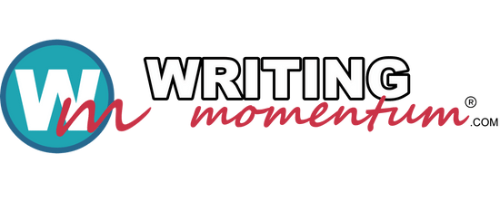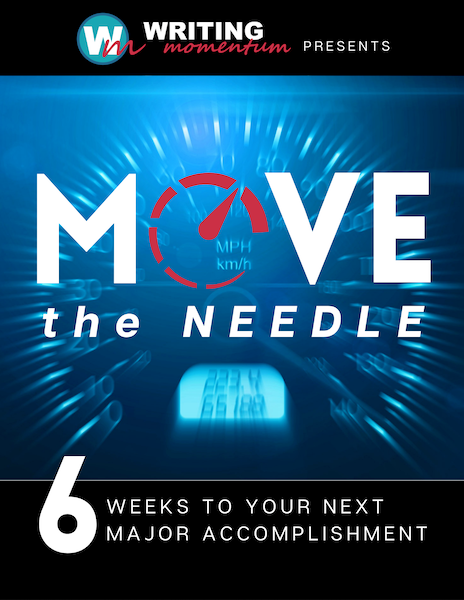Episode 134
Mastering First Page Critiques - The 5 Don'ts with Henry McLaughlin
Join Christopher Maselli and Gena Maselli in their latest Writing Momentum podcast episode featuring award-winning author Henry McLaughlin. Known for his acclaimed Riverbend series, Henry delves into the importance of manuscript critiques, offering valuable advice on giving and receiving feedback, and best practices for submitting your work. This episode is packed with insights on refining writing, the supportive nature of writing groups, handling critiques, and the benefits of community feedback. Perfect for writers aiming to polish their craft and navigate the world of self-publishing.
- 00:00 Welcome to the Writing Momentum Podcast
- 00:19 Introducing Henry McLaughlin: Our Resident Critiquer
- 01:32 The Value of Critiques in Writing
- 03:55 What Not to Do When Submitting for Critiques
- 07:39 The Importance of Submitting Your Best Work
- 09:00 The Value of Group Critiques
- 10:03 Writing as a Community Effort
- 11:33 Final Thoughts on Critiques
- 15:26 Join Our Writing Community
LINKS:
- Write with us! Join our writing membership and get your book DONE! https://henrym--writingmomentum.thrivecart.com/membership/
- Liz Wilcox's Email Marketing Membership at http://wmdeal.com/liz
- Get your FREE Move the Needle goal-setting for authors ebook at https://www.writingmomentum.com
Transcript
Hello and welcome to the Writing Momentum podcast.
Speaker:I'm Christopher Maselli here with my wife, Gena.
Speaker:How you doing, Gena?
Gena:I'm doing good.
Gena:Pretty good.
Gena:And we're back.
Gena:Gena's got a bit of a cold.
Gena:I'm stuffy.
Gena:Yeah, she's stuffy.
Gena:So if I sound crazy and clogged up, it's, I am.
Gena:It's just the way it is.
Gena:But you know what?
Gena:You push on.
Gena:You push on.
Gena:Hey, we're back with Henry McLaughlin, our resident critiquer.
Gena:He's doing critiques with us here at Writing Momentum.
Gena:How you doing today, Henry?
Henry:I'm doing very good.
Henry:Thank you, Chris.
Henry:Good to see you both.
Henry:Yes, you too.
Gena:It's good to see you too.
Gena:We're so, so thankful that you are here and thankful that you are
Gena:joining Writing Momentum and bringing this service to Writing Momentum.
Gena:I think that's so great.
Henry:Well, you're welcome.
Henry:It's the kind of thing where God, God gave me the okay to go ahead and do this.
Henry:He's had to rein me in many times, so.
Henry:This is a go, go do this, go help writers.
Henry:So I said, okay.
Henry:I think you're going to help a lot of people because this is, it
Henry:really is, it's a very good service.
Henry:And, uh, and I'll tell you, for you, for you who is listening, to
Henry:have your manuscript critiqued by someone like Henry, who's been in
Henry:the business for a long time, is really a good, valuable service.
Henry:He's, he's been listed as one to watch by Publishers Weekly, he's an award
Henry:winning author, he's got his Riverbend series, and his latest book is Emily's
Henry:Trials, and this is someone who's, uh, Seasoned in writing and he's going to
Henry:be able to offer really good critiques.
Henry:So let's, let's go back a little bit.
Henry:Um, uh, so when we talk about critiques, we're going to be offering
Henry:critiques through the Writing Momentum membership at writingmomentum.
Henry:com slash membership.
Henry:If you're a part of the membership, the critiques are included.
Henry:So this is something that's a very valuable service that is
Henry:actually really affordable, um, as Henry's going to start doing these.
Henry:And so you, you want to jump on into, um, uh, have him critique your work,
Henry:but let's talk a little bit, just real briefly again, for anyone who's maybe
Henry:hearing about this for the first time, if they didn't hear the last podcast,
Henry:where we talked about critiques, what are critiques and how do they work?
Henry:Okay.
Henry:Well, Critiques are really an opportunity to get feedback on your writing.
Henry:Um, they work by submitting, obviously.
Henry:And, in this case, what I will do is, is review the page, um, make suggested
Henry:edits, uh, and then, um, We'll be doing this as a group, uh, meeting, so everybody
Henry:will have a chance to participate.
Henry:And then we'll discuss that, that submission, discuss that critique,
Henry:and uh, you know, just, just, it's a tool to help us improve our writing.
Henry:To help us refine, develop, um, tweak our writing, you know.
Henry:Yes.
Henry:And that's where their value is.
Henry:It's a second set of non involved eyes, you know, looking at what we're writing,
Henry:because we can get too close to our writing and think it's perfect, you know,
Henry:or I think it's horrible, one way or the other, this gives us that objective
Henry:look at, at our writing so we can, we can get some good, honest feedback
Henry:and incorporate it into our writing.
Henry:Yeah, that's good.
Henry:And you're, you're planning to do one page manuscript.
Henry:So this would be on the first page of the manuscript, right?
Henry:So this isn't like a whole book.
Henry:We're going to start with one page.
Henry:So it's not that threatening either.
Henry:You just know, okay, this is, this lets me know if I'm getting the reader's
Henry:attention, if I'm starting off right.
Henry:Right.
Henry:Yeah, you're right.
Christopher:That's good.
Gena:Well, if you, Hopefully everybody's already had a chance to listen to our last
Gena:podcast where we talked about what you should do when submitting for critiques.
Gena:But we thought we'd also talk about what you should not do.
Gena:Here's the don'ts for submitting critiques.
Gena:So let's get started.
Gena:This first one, Henry, do you want to kick it off for us?
Gena:What's the first thing that people.
Christopher:Should not do.
Gena:Yeah, I was trying to think, how do I say that?
Gena:What's something they don't do for submitting a critique?
Henry:I think one of the first things is we don't want to discount the feedback.
Henry:Because it's not what we want to hear.
Henry:You know?
Henry:We talked about this a little bit in the earlier podcast
Henry:about, um, you know, developing a thick skin, having an open mind.
Henry:Um, we're submitting our writing for a reason.
Henry:We want some feedback on it.
Henry:Um, if we're looking, you know, just to be praised for our writing.
Henry:Submit it to your mother, or your Aunt Jane or whatever, but, um, if
Henry:you want some, uh, decent, honest evaluation of your writing, use this
Henry:workshop, we're going to, this tool we're going to be using, don't discount,
Henry:you know, the value of a critique.
Henry:Along those lines, I think the question comes up.
Henry:When should I submit a critique?
Christopher:Yeah.
Henry:You know, at what point in my writing should I should I submit it?
Henry:I would say when you've got that first page as good as you can get it
Henry:submit it.
Henry:Okay, if you're if you're writing a book, a novel, and you feel stuck, submit your
Henry:first page, because sometimes unlocking the stuckness is in the first page.
Christopher:That's good, it lets you know if you're just getting
Christopher:off on the right foot, which is
Henry:exactly
Christopher:so important for that beginning part of the manuscript.
Christopher:Yeah, that's good.
Gena:I think people maybe don't always understand or recognize how important
Gena:that first page is that this, this page is doing a big job in your work,
Gena:whether that's a short story or a book, a novel or whatever, that first
Gena:page is where you're really setting the story up, introducing characters,
Gena:introducing setting, but getting also right, grabbing your reader's attention.
Gena:You talked about that quite a bit in our last one.
Gena:So it's, it's doing a big job.
Henry:Yeah.
Henry:Yeah, it really is.
Christopher:So the second thing you don't want to do when going into a
Christopher:critique is don't go in thinking that you won't get any notes of correction
Christopher:even if the manuscript's great.
Christopher:Because the whole point of the critique is to be a critique, right?
Henry:Right, right.
Henry:It's an evaluation, it's an assessment of your writing.
Henry:And does your writing, as Gena was saying, grab the reader right from the get go.
Henry:Um, yeah, so you are going to get feedback.
Christopher:Yes.
Henry:Um,
Christopher:Could you get positive feedback?
Henry:Yeah, you, there's definitely, there'll be positive feedback.
Henry:Um, and there'll be, I don't want to use the word negative, but suggestions
Henry:for making the manuscript better.
Henry:Okay.
Henry:Yeah, you know, um, but yeah, they'll be if, if there's something
Henry:good, I'll point it out to you.
Henry:If I think you did a great job, I'll point it out to you.
Henry:Um, because we need that encouragement to.
Henry:I think back to, you know, the first time I went to a writer's group and submitted
Henry:my first few pages and it's like, oh, you know, and gee, I survived it.
Henry:Yeah.
Henry:So,
Christopher:yes.
Henry:And the first time I had, uh, uh, somebody I didn't know
Henry:critique my first couple of pages.
Henry:Yeah.
Henry:I survived it.
Henry:It's, it's okay.
Henry:We can do this.
Christopher:Exactly, exactly.
Christopher:Gena, what's the third one?
Gena:Third one.
Gena:Um, and we've talked about this a little bit.
Gena:Um, don't submit until you're ready.
Gena:Submit your best work.
Gena:Yeah.
Gena:And I know I've had that.
Gena:I've, I've seen this happen before where someone submits really what
Gena:is kind of a work in progress.
Gena:And instead of where it's really ready to be critiqued and
Gena:they were really discouraged.
Gena:They were discouraged because they really weren't ready for that critique.
Gena:Um, what would you say to that, Henry?
Henry:Um, I would say, um, take your time.
Henry:You know, if you have any doubts, any, any concerns, take your time, review it,
Henry:rewrite it, edit it, you know, whatever, uh, it would really be helpful if the
Henry:author feels comfortable submitting it, if they have any, Oh, I don't know if that's
Henry:the right way to say that or whatever.
Henry:Well, they can ask that question.
Henry:Is this the right way to say that?
Henry:Um, but if they've just kind of dashed off their, their first couple of pages
Henry:and send in their first one without even really reading it, um, that's
Henry:not going to be very helpful, you know, for them or, or for the group
Henry:that'll be, that'll be discussing it.
Gena:Well, and I would even say with that, that, uh, these critiques that
Gena:we're going to be doing, this is a group.
Gena:environment.
Gena:So during that one hour critique session, Henry's going to be critiquing probably
Gena:two pieces and really going slowly reading them and really talking them through.
Gena:Yeah.
Gena:But even if you don't submit for the critique, coming to the critique
Gena:and listening to the feedback and reading the papers and then listening
Gena:to the feedback, it is so valuable.
Gena:It's so valuable.
Henry:It is, it is, yeah.
Henry:That's a good point.
Henry:You don't have to submit, you know, to be part of the group.
Henry:And I'm really, my goal is for it to be an interactive group,
Henry:where we're sharing ideas, sharing questions, sharing techniques or
Henry:things we've done that have worked.
Henry:and things we've done that haven't worked, um, you know, just to
Henry:kind of build each other up.
Henry:Um, one, one of the things about writing, um, is community
Christopher:Yes.
Henry:Um, you know, your writing is, is something you do all alone,
Henry:but you need a whole bunch of people.
Christopher:That's right.
Christopher:That's right.
Henry:You need that support team.
Henry:So yeah, that encouragement, that honest feedback.
Henry:Yeah.
Christopher:Yeah, we're always telling people that, you know,
Christopher:writing is not a solitary venture.
Christopher:We, we tend to think of it that way, but really it involves all of us.
Christopher:We're writing together and that's how we have writing momentum, right?
Christopher:That's what we always say, but, but it's, but it's, it is, it's
Christopher:a, it's, it's a together thing.
Gena:Because if we're just writing on our own and we never go outside,
Gena:we're not going to improve.
Gena:We're going to keep doing some of the same things.
Gena:We have to go.
Gena:Exactly.
Gena:outside ourselves in order to improve, to learn the techniques, to learn the craft.
Gena:And that's why we're so thankful that you're here to do the critiques.
Gena:I think that's beautiful.
Gena:With Laurel doing our roundtables, she brings so much and, you know, for
Gena:people to come and be a part of that.
Gena:For the Wednesday groups that we have, the co writing that starts with
Gena:some small teaching at the beginning.
Gena:These are all ways that we just kind of immerse ourselves in
Gena:this so that we can all improve.
Christopher:Yeah.
Christopher:Yeah.
Christopher:Absolutely.
Henry:Yeah.
Christopher:All right, Henry, bring us home.
Christopher:What is the last do not when it comes to critiques?
Henry:Well, don't think that the critique is the final word on your project.
Henry:You know, um, it's a start.
Henry:It's a beginning.
Henry:It's a, um, it's an opportunity to get some feedback, maybe early
Henry:on in the writing process, uh, or maybe you've been writing for
Henry:years and you've had some books published or short stories published.
Henry:Um, we still need that critique.
Henry:That opportunity to get feedback, um, but it's not the final word.
Henry:The person who has the final word, if you go with a traditional publisher,
Henry:the publisher has the final word.
Henry:And they will quickly let you know that they have the final word.
Henry:Um, but, uh, if we're going to self publish, definitely we need feedback
Henry:from as many people as we can get.
Henry:Um, And, you know, self publishing is on the rise.
Henry:Uh, still, I've, I know I've read some amazing number, like over a million
Henry:books I've published a year now.
Henry:Most of them self published.
Henry:Um, man, that's, that's a tough market to crack.
Christopher:There's a lot of books.
Henry:There's a lot of books, and it's hard to get attention, but if we can
Henry:put out The best product we can, the best story we can, well good, we got
Henry:a leg up on a lot of the competition.
Henry:And if we've gotten good feedback, either from a critique person or writing
Henry:group, or we were able to have it professionally edited, um, whatever, uh,
Henry:it's just going to make our story better.
Henry:So don't, don't think, you know, if you get a harsh critique, or discouraging
Henry:critique, don't take that as I'm no good, I'll never be a writer, you know, because
Henry:writing is a craft that can be learned.
Christopher:Yes.
Henry:And again, we learn it through practice.
Christopher:Yes.
Henry:We learn how to write through writing, and we learn how
Henry:to write through getting feedback, you know, to improve our writing.
Henry:So, you know, I wouldn't want people to take any feedback or
Henry:critique I give them and give up.
Christopher:Right.
Henry:Because I'm one person.
Henry:Um, yeah, I've been around for years and, um, you know, uh, uh, I've had a lot of
Henry:experience with positive and negative feedback and, and I want to share that.
Henry:That's one thing God has put on my heart is to share that with other writers.
Henry:So that they can improve, not that they can be told, Oh, you'll never be
Henry:a writer, you know, I don't think I would ever say that to anybody, I would
Henry:look for some way to encourage them.
Henry:And that's that's, you know, I'm just trying to give them some honest
Henry:feedback, both positive and negative.
Henry:Hopefully, um, you know, they can pull nuggets out that really apply
Henry:to them and just go with that.
Christopher:Well, hey, that's why we are excited to have you as a part
Christopher:of this, because if you're nervous about sending in your That manuscript
Christopher:page and you think, Oh man, there, someone's going to tear it apart.
Christopher:Henry knows how to be gentle.
Christopher:He knows how to critique in such a way that he can share with you what works and
Christopher:gently share with you what doesn't work so that you feel motivated to improve it
Christopher:and not feel like you've been torn down.
Christopher:Right.
Christopher:We've all been at writers conferences where someone feels like that after
Christopher:getting a harsh critique and Henry knows how to navigate around and, um, and not.
Christopher:Not give a brutal critique, but rather give one that is encouraging
Christopher:and shows you how to improve.
Henry:That's my goal.
Christopher:Yes.
Christopher:Well, thank you so much for joining us again on the podcast, Henry.
Christopher:It's always a delight to have you here and we're super excited.
Christopher:You're going to be, um, in our membership and giving critiques.
Christopher:We're going to start the first one here at the end of this month,
Christopher:October, 2024, but we're planning to do them on an ongoing basis.
Christopher:So whenever you hear this podcast, please jump on in, go to writingmomentum.
Christopher:com slash membership, and you can be a part.
Christopher:You can, uh, join our, uh, Tuesdays with Laurel, where she does round tables,
Christopher:our Wednesdays where we have co writing sessions and training with myself and
Christopher:Gena and Rene Gutteridge, and then on.
Christopher:Uh, some of our Thursdays we're going to have these critiques,
Christopher:which would be super cool.
Gena:So exciting.
Henry:Looking forward to it.
Christopher:Well, you know, we are not Yes.
Christopher:Of course.
Christopher:You're, you're welcome.
Christopher:Because we are not in this writing thing alone.
Christopher:It's together that what?
Gena:We have writing momentum.
Henry:There you go.
Henry:Absolutely.
Henry:Okay.
Henry:Bye bye.
Christopher:See y'all.
Christopher:Bye bye.
Henry:Bye.
Henry:bye.





